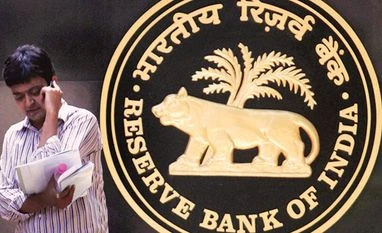The new NPA framework will allow state-owned banks to conduct open auction of NPAs, wherein cash-rich public sector companies will be encouraged to buy such assets in their sector.
The framework, which will deal with Rs 6 lakh crore worth of toxic assets, was approved by the Cabinet on Wednesday. It contains a set of fresh guidelines for public auction of assets by public sector banks (PSBs) for the steel and power sectors, which account for a majority of toxic assets.
Sources told Business Standard that when stressed assets were put on the block, banks would reach out to state-owned companies to buy those up. “Large cash-rich public sector companies will be encouraged to buy the assets being auctioned in their sector by the state-owned banks,” an official said.
The Cabinet had sent the Ordinance to President Pranab Mukherjee, who approved it around 2 am on Friday after seeking legal opinion on the matter.
Officials said this was a necessity with such ordinances, especially because this one would amend the Act in the monsoon session.
The framework also recommends setting up RBI oversight committees to monitor progress on the top 35-40 NPAs of all banks. These constitute 60 per cent of all NPAs by value. The committees may be allowed to oversee joint lenders' forums (JLFs) dealing with individual cases. They might decide how much of a haircut an individual bank must take and could intervene if a JLF reached a deadlock, said an official. Currently there is no enabling provision that allows RBI to act on behalf of PSBs on resolving bad loans. Besides, the board for financial regulation and supervision will be tightened further.
“The Insolvency and Bankruptcy Board and the National Companies Law Tribunal will be involved in the process as well,” said an official. “If bankers decide that a debt-laden entity needs to go under, that entity will undergo bankruptcy proceedings,” the official added. “The NCLT will be strengthened with additional manpower now that we expect many companies whose balance sheets have turned toxic and are beyond revival to undergo proceedings,” the official said.
Meanwhile, Finance Secretary Ashok Lavasa told reporters on Thursday that the NPA framework was drafted and approved by the Cabinet after discussions with all stakeholders, including RBI, banks and the companies affected.
"Certainly we feel that these changes will make the system more effective in handling the bad loans and gradually with the professionalism that exists in our banking system and with the participation of the promoters themselves and the companies, we should be able to reach resolution in many of the cases," Lavasa said.
The framework also envisages amendments to the Prevention of Corruption Act to exempt commercial decisions by PSBs from scrutiny by investigating agencies. Both the amendments are likely in the monsoon session of Parliament.
The government has asked banks to provide data on their top NPA accounts. It has also sought more information from consortium leaders.
To read the full story, Subscribe Now at just Rs 249 a month
Already a subscriber? Log in
Subscribe To BS Premium
₹249
Renews automatically
₹1699₹1999
Opt for auto renewal and save Rs. 300 Renews automatically
₹1999
What you get on BS Premium?
-
Unlock 30+ premium stories daily hand-picked by our editors, across devices on browser and app.
-
Pick your 5 favourite companies, get a daily email with all news updates on them.
Full access to our intuitive epaper - clip, save, share articles from any device; newspaper archives from 2006.
Preferential invites to Business Standard events.
Curated newsletters on markets, personal finance, policy & politics, start-ups, technology, and more.
Need More Information - write to us at assist@bsmail.in
)